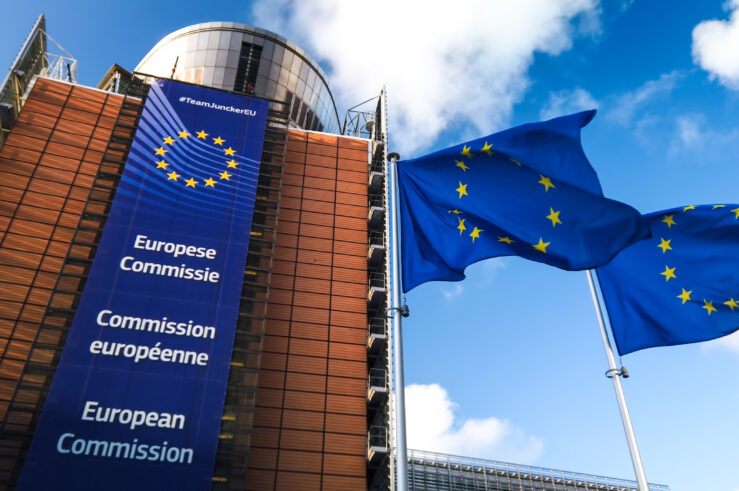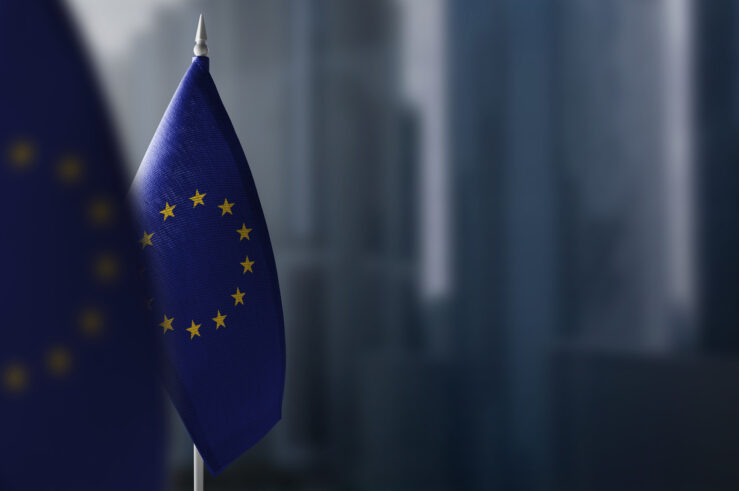Showing results for: “Valid C1000-170 Study Materials 🕗 C1000-170 Latest Exam Answers 🏮 Trusted C1000-170 Exam Resource 🦍 Search on 【 www.pdfvce.com 】 for 【 C1000-170 】 to obtain exam materials for free download 🐀Valid C1000-170 Dumps Demo”
Untangling the 9th Circuit’s Ruling in Epic Games v Apple
The 9th U.S. Circuit Court of Appeals ruled late last month on Epic Games’ appeal of the decision rendered in 2021 by the U.S. District Court for the Northern District of California in Epic Games v Apple, affirming in part and reversing in part the district court’s judgment. In the original case, Epic had challenged as a violation ... Untangling the 9th Circuit’s Ruling in Epic Games v Apple
Artificial Intelligence Meets Organic Folly
In a May 3 op-ed in The New York Times, Federal Trade Commission (FTC) Chair Lina Khan declares that “We Must Regulate A.I. Here’s How.” I’m concerned after reading it that I missed both the regulatory issue and the “here’s how” part, although she does tell us that “enforcers and regulators must be vigilant.” Indeed, ... Artificial Intelligence Meets Organic Folly
Four Horsemen of the Bureaucratic Apocalypse Come for AI
Four prominent horsemen of the Biden administration’s bureaucratic apocalypse—the Federal Trade Commission (FTC), U.S. Justice Department (DOJ) Civil Rights Division (DOJ), Consumer Financial Protection Bureau (CFPB), and the U.S. Equal Employment Opportunity Commission (EEOC)—came together April 25 to issue a joint statement pledging vigorous enforcement against illegal activity perpetrated through the use of artificial intelligence ... Four Horsemen of the Bureaucratic Apocalypse Come for AI
The AI Act and Regulatory Overaggregation
It appears that the emergence of ChatGPT and other artificial-intelligence systems has complicated the European Union’s efforts to implement its AI Act, mostly by challenging its underlying assumptions. The proposed regulation seeks to govern a diverse and rapidly growing AI landscape. In reality, however, there is no single thing that can be called “AI.” Instead, the category comprises ... The AI Act and Regulatory Overaggregation
If Necessity Is the Mother of Invention, New EU SEP Rules Are Decidedly Unnecessary
An unofficial version of the EU’s anticipated regulatory proposal on standard essential patents (SEPs), along with a related impact assessment, was leaked earlier this month, generating reactions that range from disquiet to disbelief (but mostly disbelief). Our friend Igor Nikolic wrote about it here on Truth on the Market, and we share his his concern that: As it currently stands, it appears the regulation will ... If Necessity Is the Mother of Invention, New EU SEP Rules Are Decidedly Unnecessary
Biweekly FTC Roundup: But Wait, There’s More Edition
More, and not just about noncompetes, but first, yes (mea culpa/s’lach lanu), more about noncompetes. Yesterday on Truth on the Market, I provided an overview of comments filed by the International Center for Law & Economics on the Federal Trade Commission’s (FTC) proposed noncompete rule. In addition to ICLE’s Geoffrey Manne, Dirk Auer, Brian Albrecht, Gus Hurwitz, and ... Biweekly FTC Roundup: But Wait, There’s More Edition
The FTC’s Noncompete Rule: A Bridge Too Far
As I noted in January, the Federal Trade Commission’s (FTC) proposal to ban nearly all noncompete agreements raises many questions. To be sure, there are contexts—perhaps many contexts—in which noncompete agreements raise legitimate policy concerns. But there also are contexts in which they can serve a useful procompetitive function. A per se ban across all industries and occupations, as the ... The FTC’s Noncompete Rule: A Bridge Too Far
Digital-Market Regulation: One Size Does Not Fit All
Regulators around the globe are scrambling for a silver bullet to “tame” tech companies. Whether it’s the United States, the United Kingdom, Australia, South Africa, or Canada, the animating rationale behind such efforts is that firms like Google, Apple, Meta, and Amazon (GAMA) engage in undesirable market conduct that falls beyond the narrow purview of antitrust law (here and here). To tackle these supposed ... Digital-Market Regulation: One Size Does Not Fit All
European Commission’s Leaked SEP Regulation Would Increase Costs for Innovators, Hurt EU Competitiveness, and Fail to Reduce Litigation
The European Commission is working on a legislative proposal that would regulate the licensing framework for standard-essential patents (SEPs). A regulatory proposal leaked to the press has already been the subject of extensive commentary (see here, here, and here). The proposed regulation apparently will include a complete overhaul of the current SEP-licensing system and will ... European Commission’s Leaked SEP Regulation Would Increase Costs for Innovators, Hurt EU Competitiveness, and Fail to Reduce Litigation
Biweekly FTC Roundup: Antitrust Woodstock Edition
Last week’s roundup was postponed because I was kibbitzing at the spring meeting of the American Bar Association (ABA) Antitrust Section. For those outside the antitrust world, the spring meeting is the annual antitrust version of Woodstock. For those inside the antitrust world: Antitrust Woodstock is not really a thing. At the planetary-orbit level, the ... Biweekly FTC Roundup: Antitrust Woodstock Edition
What the European Commission’s More Interventionist Approach to Exclusionary Abuses Could Mean for EU Courts and for U.S. States
The European Commission on March 27 showered the public with a series of documents heralding a new, more interventionist approach to enforce Article 102 of the Treaty on the Functioning of the European Union (TFEU), which prohibits “abuses of dominance.” This new approach threatens more aggressive, less economically sound enforcement of single-firm conduct in Europe. ... What the European Commission’s More Interventionist Approach to Exclusionary Abuses Could Mean for EU Courts and for U.S. States
When Bad Antitrust Costs Lives: The Illumina/GRAIL Tragedy
Regrettably, but not unexpectedly, the Federal Trade Commission (FTC) yesterday threw out a reasoned decision by its administrative law judge and ordered DNA-sequencing provider Illumina Inc. to divest GRAIL Inc., makers of a multi-cancer early detection (MCED) test. The FTC claims that this vertical merger would stifle competition and innovation in the U.S. market for ... When Bad Antitrust Costs Lives: The Illumina/GRAIL Tragedy









